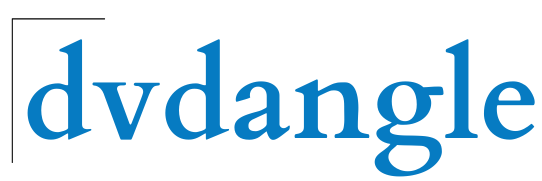In today’s digital age, businesses need to adapt and evolve with technology. The internet has become the most accessible way for consumers to gather information, communicate and purchase goods and services. As a result, companies are turning to web marketing strategies in order to effectively reach their target audiences and increase sales. But, what exactly is the purpose of web marketing? Let’s dive deeper into this subject and explore its primary objectives, benefits and essential tools.
Primary Objectives of Web Marketing
Web marketing, also known as online marketing or digital marketing, encompasses various techniques and tactics implemented by businesses to enhance their online presence, attract potential customers and boost revenue. Here are some key objectives that web marketing aims to achieve:
- Increasing brand awareness: Establishing a strong brand identity helps businesses stand out from their competitors and develop a lasting relationship with their audience. Web marketing allows companies to consistently expose their brand to potential clients through various channels such as search engine optimization (SEO), social media platforms and pay-per-click advertising (PPC).
- Generating leads: One of the main purposes of web marketing is to attract an engaged visitor base who might be interested in purchasing products or services. Through avenues like email marketing campaigns, landing pages and lead magnets, businesses can pique the interest of potential clients and move them further down the sales funnel.
- Boosting conversions: Achieving higher conversion rates means optimizing both user experience and content strategy, which ultimately leads to increased business profits. Web marketing facilitates better interactions with website visitors by utilizing approaches like A/B testing, remarketing techniques and personalized offers.
- Engaging with customers: Maintaining a solid rapport with the customer base is vital for long-term success. Web marketing assists companies in interacting with their clients through social media engagement, addressing queries via website chatbots and even obtaining valuable feedback through online reviews.
- Measuring success: The efficiency of a web marketing strategy can be evaluated by tracking various key performance indicators (KPIs). This allows businesses to observe the effectiveness of their campaigns, make necessary improvements and allocate resources efficiently.
Benefits of Implementing Web Marketing Strategies
The advantages of embracing web marketing methods go beyond increased sales and advertising potential. Here are some noteworthy benefits that businesses can reap from adopting online marketing techniques:
- Catering to diverse consumer preferences: With web marketing, businesses can easily reach out to a wider range of audiences and cater to different client requirements. Customized email marketing campaigns, targeted ads or personalized offers help organizations tap into diverse consumer preferences, tailoring their products or services accordingly.
- Cost-effective solutions: Compared to traditional marketing tactics like print advertisements, billboards, and broadcast commercials, digital marketing techniques are more budget-friendly, allowing smaller businesses to remain competitive within their niche markets.
- Real-time results: Arguably one of the greatest advantages of web marketing strategies is the ability to monitor campaign performance in real-time. Using advanced analytical tools, businesses can swiftly evaluate customer behavior patterns and tweak their approaches on-the-fly to maximize returns.
- Enhancing customer interactions: Strengthening audience connections has never been easier than with web marketing methods. Social media platforms, video content and chatbots facilitate effective communication between businesses and their clients, leading to improved brand loyalty and credibility.
Essential Web Marketing Tools
There are various web marketing tools available for businesses to leverage in their campaigns. Utilizing these resources can significantly enhance the effectiveness of online marketing efforts, driving more traffic and fostering customer engagement. Here are some essential web marketing tools:
1. Search Engine Optimization (SEO) Tools
Companies must ensure that their websites rank high on search engine results pages (SERPs), making it easier for potential customers to find them. SEO techniques help improve search rankings by optimizing website content and structure in line with search engine algorithms. Essential SEO tools include keyword research tools like Google Keyword Planner, site audit tools such as Screaming Frog and analytics tools like Google Analytics.
2. Content Marketing Tools
High-quality content is critical in attracting attention and captivating audiences. By using content marketing tools, companies can manage their blogs, articles, newsletters and other digital materials more efficiently. Examples of such tools include blog schedule platforms like CoSchedule, content research resources like Buzzsumo and plagiarism checkers like Copyscape.
3. Email Marketing Tools
Email marketing remains one of the most effective communication channels between businesses and their clients. Tools that aid in creating appealing email designs, managing subscriber lists and tracking performance metrics are essential for successful campaigns. Popular email marketing tools include Mailchimp, ActiveCampaign and Constant Contact.
4. Social Media Management Tools
Having a strong social media presence grants organizations extensive access to their target audience. Social media management tools assist businesses in strategizing and executing posts across multiple platforms, engaging with followers and monitoring performance metrics. Examples of such tools are Buffer, Hootsuite and Sprout Social.
In summary, the purpose of web marketing is to enhance a company’s online presence, attract potential clients and boost revenue by harnessing an array of digital marketing techniques. Implementing effective web marketing strategies provides several benefits, including catering to diverse customer preferences, offering cost-effective solutions and fostering real-time interaction with clients. By taking advantage of essential web marketing tools, businesses can ensure their campaigns achieve maximum impact and yield optimal results.





